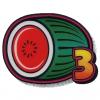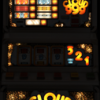>so is introducing player frustration part of the game design ?
No - why would you annoy people? They'll just walk away and play something else!
>One more question if I may - the current DOND machines - does it take that much work i.e. in design, programming now to come up with a new machine
For reglasses, no. If its a straight clone, then coding wise it's no more than a few days work. A full, totally "new" concept is roughly 12 weeks dev time (art/sounds/mechanical development overlap, of course). One programmer should be able to do 4-5 new games a year.
>With regards to repeat customers - do you think addiction was part of that ?
Yes, to a certain degree but no one ever sat around a table and said "Right, how can we get people addicted with our new game?". That just didn't (and can't) happen. I won't go off on one about addiction issues, but one of our coders at Mazooma was a devout Christian, and he reconciled his part in the picture. No difference if you are designing weapons. That's another topic 
>One more question - do you keep a record of the players activities whilst playing?
No. An AWP has no storage to speak of, and if you think of the thousands of spins a game gets each week, storing data becomes a real problem. What all machine did have were "software meters" or just counters that record totals. Some developers only recorded the basics, but I recorded loads of stuff. Some of it was used to control games, i.e. if you hadn't had a board game in 50 spins (due to just bad luck), then force one in. I love stats and they're a good way of checking the game is doing what it should - or tracing errors if something goes wrong. If there's a report of an emptier, and you see a huge number of the same feature being taken, then you have a look there...
>if I got a job designing machines i'd probably go down the same route.
You soon learn that you have to keep the roof over your head, and that there are no magic ways to make the greatest game in the world ever. A lot of reality happens about what is possible.
A new game is only a few % move on from the last - go too radical and no one would play them. Players are, believe it or not, very conservative people.
>so why the hell does it have to stiff you on 2 and 11 all the time ?
Some of that is sloppy coding, but it depends how you do it (run it semi-randomly or not). Also, people only remember the times they lose, by and large, so even though you won on 11 or 2 80% of the time, you only remember the times you got screwed. Same reason we never listened to players (other than ourselves!), really - their ideal game pays out at 400%. We did focus groups and it was hilarious. You take the most successful game of the time, and people that win on it love it, people that lose think its crap.






















